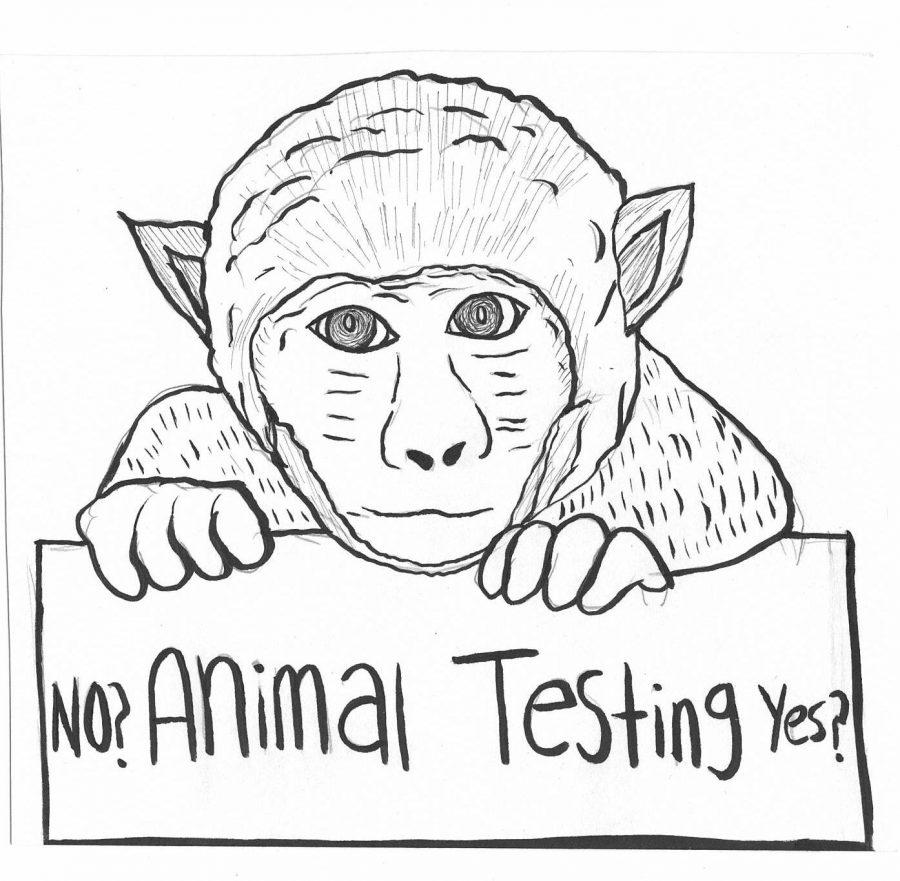Is animal testing acceptable? (Pro)
May 3, 2016
I’ve heard horror stories of animals leading tortured lives in tiny cages being poked and injected and slathered in toxic goo in the name of research. Horror gets headlines, I suppose. But there’s another side to veterinary research.
I myself, in an odd way, am the direct beneficiary of a medical procedure first performed on animals. I was delivered, as is about 20% of the population, by Caesarian section. By the time the first human C- section was performed, farmers and herdsmen had been performing them successfully on their stock for years.
While this type of “research” certainly isn’t formal, it shows the potential of having creatures similar to ourselves to learn from. Surgical birth was performed on livestock with the intention of saving both animals, and it did that so well we began performing them medically. The procedure has saved billions of lives, both our own and the animals we care for.
A more recent example is Dr. Bruce Alexander’s 1981 addiction study performed on rats. Dr. Alexander and his colleagues found that solitary rats put in cages with steady access to cocaine will administer the drug to themselves compulsively. In some cases, the rats refused to do anything else, including eat or clean themselves, and would literally drug themselves to death.
Dr. Alexander then built a big, communal cage with art and fresh food and interesting things for rats to play with and look at and do. He called it Rat Park, and the rats immediately decided it was better than coke. When he offered the drug, all of the rats tried it, some did it repeatedly, but none to the point of physical self-neglect, as the solitary rats in the empty cages had done.
Dr. Alexander’s research with rats is revolutionizing how medical science treats addicts and addiction. We are now coming to realize the massive effect a person’s environment has on their behavior. We gained this knowledge not by doing additional damage, but by going out of our way to provide humane treatment. What we learned is that we can get rats off of coke just by being kind to them. Imagine what we could learn to do for one another. The reason there is such outcry when unethical animal research is discovered is because we understand the value of the animals we claim superiority over. We understand that the knowledge they give us is a gift and that their bodies and minds should be treated with the reverence our fellow creations deserve. It is evil to wring the life from the animals’ bodies just to study them, but let’s not let shame make us ignore their contributions.













Luna • May 5, 2016 at 6:51 am
I think animal testing is good so it should be promoted